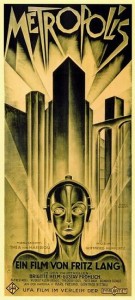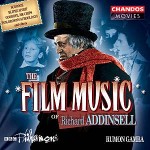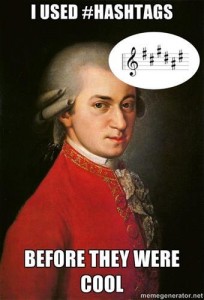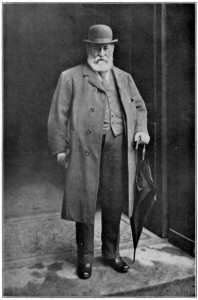Film Music
Would Mozart have written film music if films were around in his day? Well, obviously, films were not around in Mozart’s day, but there was an equivalent, which was the stage, and many composers supplemented their incomes (especially those that did not have wealthy patronage) by writing music for the stage. Not operas, but incidental music. Music that was written to enhance the performance, and sometimes to fill the gaps between scene changes. Audiences were a different story back then. If they got bored, they might get rowdy, or simply just leave. Handel wrote his organ concertos to help keep people in their seats between the acts of his operas. They became very popular in their own right, and were often featured in the poster announcing the opera.
Interestingly, film music had a similar beginning. In the early days of motion pictures, the projectors were in the same room with the viewers. They were large, and very noisy. They had to be operated by hand, and films broke frequently. Once again, something was needed to keep people from getting irritated by the noise and the interruptions, and music was the answer. Often a pianist (or when possible, an organist) was employed, and that player generally played classical music or popular songs. The really good ones might do a bit of improvising. The sound of the instrument helped drown out the sound of the projector, and the music helped entertain the audience while broken film was being repaired. It was a good idea, and caught on to the point that when projectors were placed in separate sound-proof rooms, thus eliminating the noise issue, the music remained. As film making became more sophisticated, the film makers (some of them, anyway) started thinking about music to accompany their films. Soon, the lone pianist or organist gave way to small ensembles, very similar to the theater orchestras that were popular in the day.
The music that was used for these films was generally classical music that was well known (still done today, as a matter of fact), sometimes arrangements of popular songs. Surprisingly, the first composer to write music specifically for a film was Camille Saint-Saens. In 1908, he wrote music specifically to accompany an 18 minute film entitled “The Assassination of the Duke of Guise,” which was a historical drama about a real event. It wasn’t the first time music accompanied a film, but it was the first real film score. This was a great deal for the film maker, as Saint-Saens was already a very established composer. It turned out to be the only film music he wrote, but it broke new ground, and slowly, but surely, composers started writing music for films. Not right away, though. In some circles, film was still viewed as “low art” and some “serious” composers thought their reputations might be damaged if they were associated with films. The theater pianist was still a fixture in silent film theaters, and one particular film company, the Oz Film Manufacturing Company would send scores by Gottschalk to accompany their films. Victor Herbert, who had already established himself as a very successful composer of stage hits (Babes in Toyland, The Red Mill, etc.) wrote the score for the 1915 film “The Fall of a Nation,” which was a sequel to “The Birth of a Nation.”
 German film maker Fritz Lang commissioned full orchestral scores to accompany some of his films, such as “Die Nibelungen” (1924) and “Metropolis” (1927). Interestingly, when sound came to films, Lang used very little or no music at all in his films. Go figure.
German film maker Fritz Lang commissioned full orchestral scores to accompany some of his films, such as “Die Nibelungen” (1924) and “Metropolis” (1927). Interestingly, when sound came to films, Lang used very little or no music at all in his films. Go figure.
By the time, a new genre had been born, and films requiring music created a new world for composers to exhibit their art, and get paid for it. Films were being produced faster and faster, and more and more music was needed. Just as many of the films were pretty bad—turned out quickly to provide banal entertainment at a time when there was no television—much of the music was pretty bad, as well. But nobody cared. This was new stuff, and it was exciting. Actors were working, writers were working, composers and musicians were working, and the public was eating it up.
Just as with anything new, the cream began to rise to the top. Films were being made that were head and shoulders above the normal, and some very fine composers were being brought in to write the music for these films. Composers like Korngold, Waxman, and Rosza, who had already established themselves as successful composers of concert music (Korngold was a child prodigy who wrote an opera when he was 15. Mahler thought him a genius) came to Hollywood (at one time, called “Hollywoodland”) and embarked on very successful careers as film composers. Many of these composers continued to write concert music, such as Korngold’s Violin Concerto (when is made up of themes from some of his film scores). Miklos Rosza, who won an Academy Award for the film music for “A Double Life,” also wrote an autobiography by the same name, and discussed at length the double life he lead as a film and concert composer. Later, Aaron Copland, Leonard Bernstein and others joined in.
Film scores sometime outlive the films they were written for. Many scores are so tied to the films they are written for that they suffer out of the context of the film. Others are they type of music that can stand alone, and some film scores have become popular concert works, especially in  “Pops” concerts. Just as Grieg, Bizet, and others arranged incidental music they wrote into concert suites, suite from film scores have kept their composers’ music alive, on the concert stage, and on the radio. From the standpoint of a radio programmer, film music is a great way to provide diversity in the programming, while still presenting great music that deserves to be heard. I have to say, that in the 15 years I have been at WBJC, I have had more comments (all positive, I might add) about the suite from Richard Addinsell’s score for the 1951 classic “A Christmas Carol” than about anything else. It’s amazing that so many of these wonderful scores (including Addinsell’s) were discarded after the release of the films they were written for. It was thought that there was no need for the music, once it had been performed and recorded on film. So much of the film music we have from that era have been reconstructed from the composer’s original notes, or copied by a skilled musician from the music as played. No mean feat.
“Pops” concerts. Just as Grieg, Bizet, and others arranged incidental music they wrote into concert suites, suite from film scores have kept their composers’ music alive, on the concert stage, and on the radio. From the standpoint of a radio programmer, film music is a great way to provide diversity in the programming, while still presenting great music that deserves to be heard. I have to say, that in the 15 years I have been at WBJC, I have had more comments (all positive, I might add) about the suite from Richard Addinsell’s score for the 1951 classic “A Christmas Carol” than about anything else. It’s amazing that so many of these wonderful scores (including Addinsell’s) were discarded after the release of the films they were written for. It was thought that there was no need for the music, once it had been performed and recorded on film. So much of the film music we have from that era have been reconstructed from the composer’s original notes, or copied by a skilled musician from the music as played. No mean feat.
So much more could be said about film music, and in subsequent articles in theWBJC Newsletter, we’ll take a closer look at the careers of some of the great film composers of our time and earlier generations. In answer to the question that opens this piece, “Would Mozart have written film music…?” I think the answer is a definite “yes,” and it would be great stuff!






